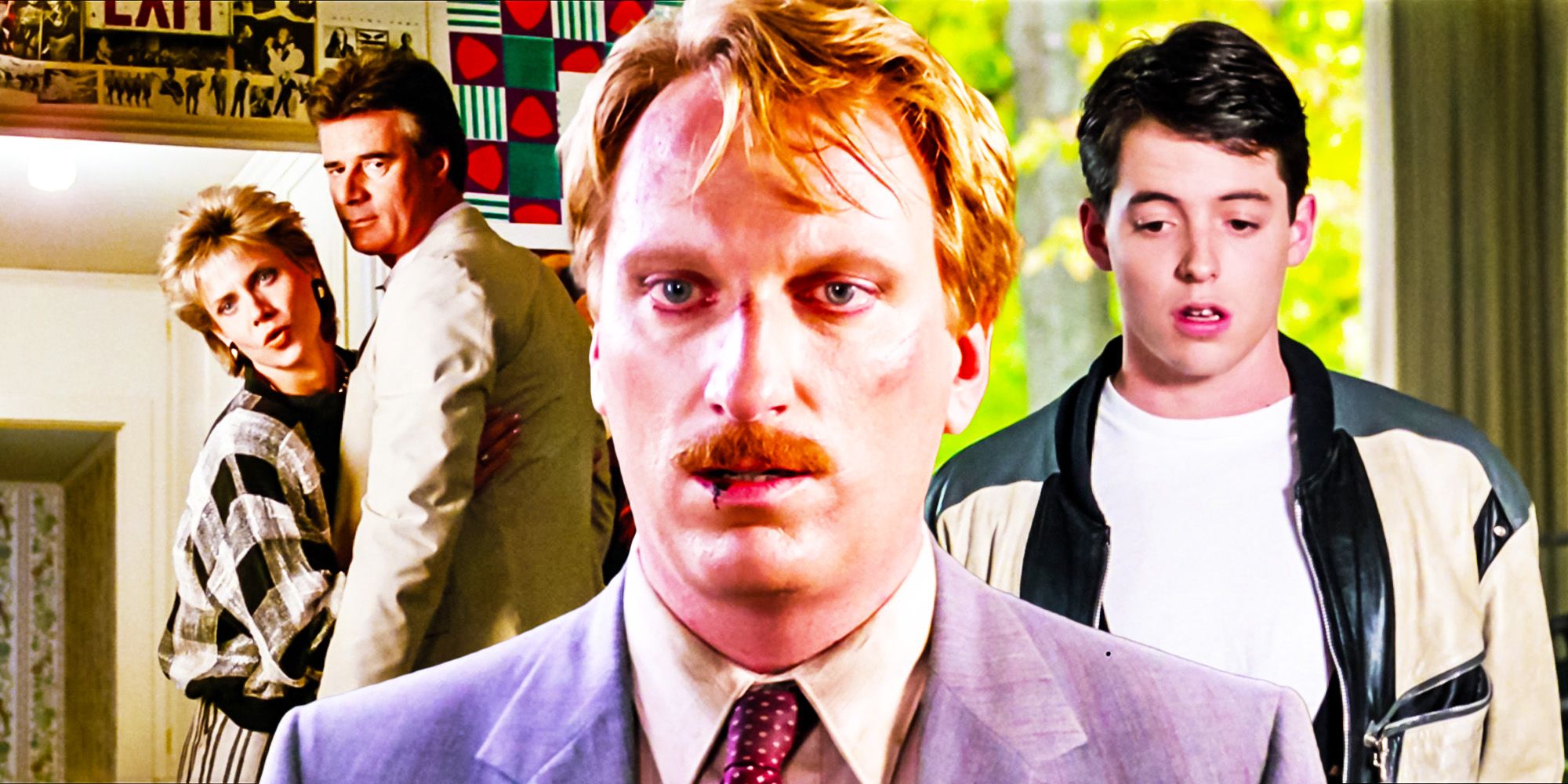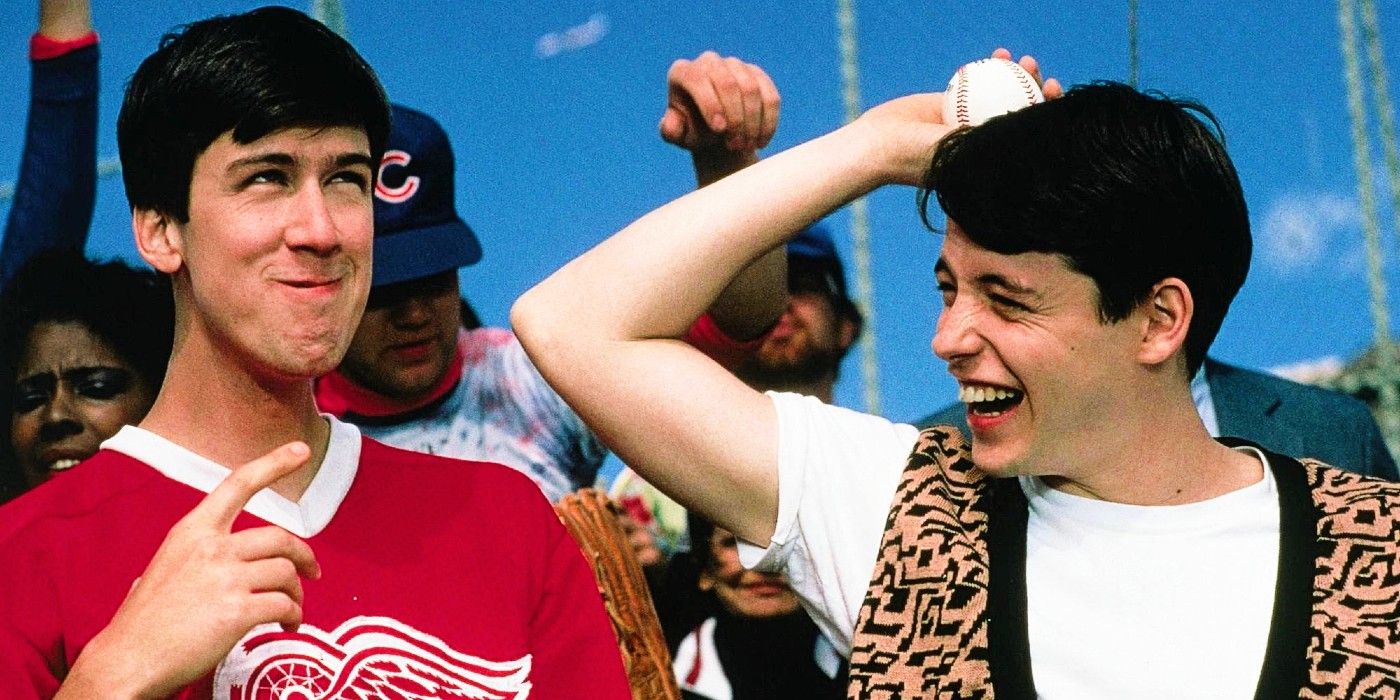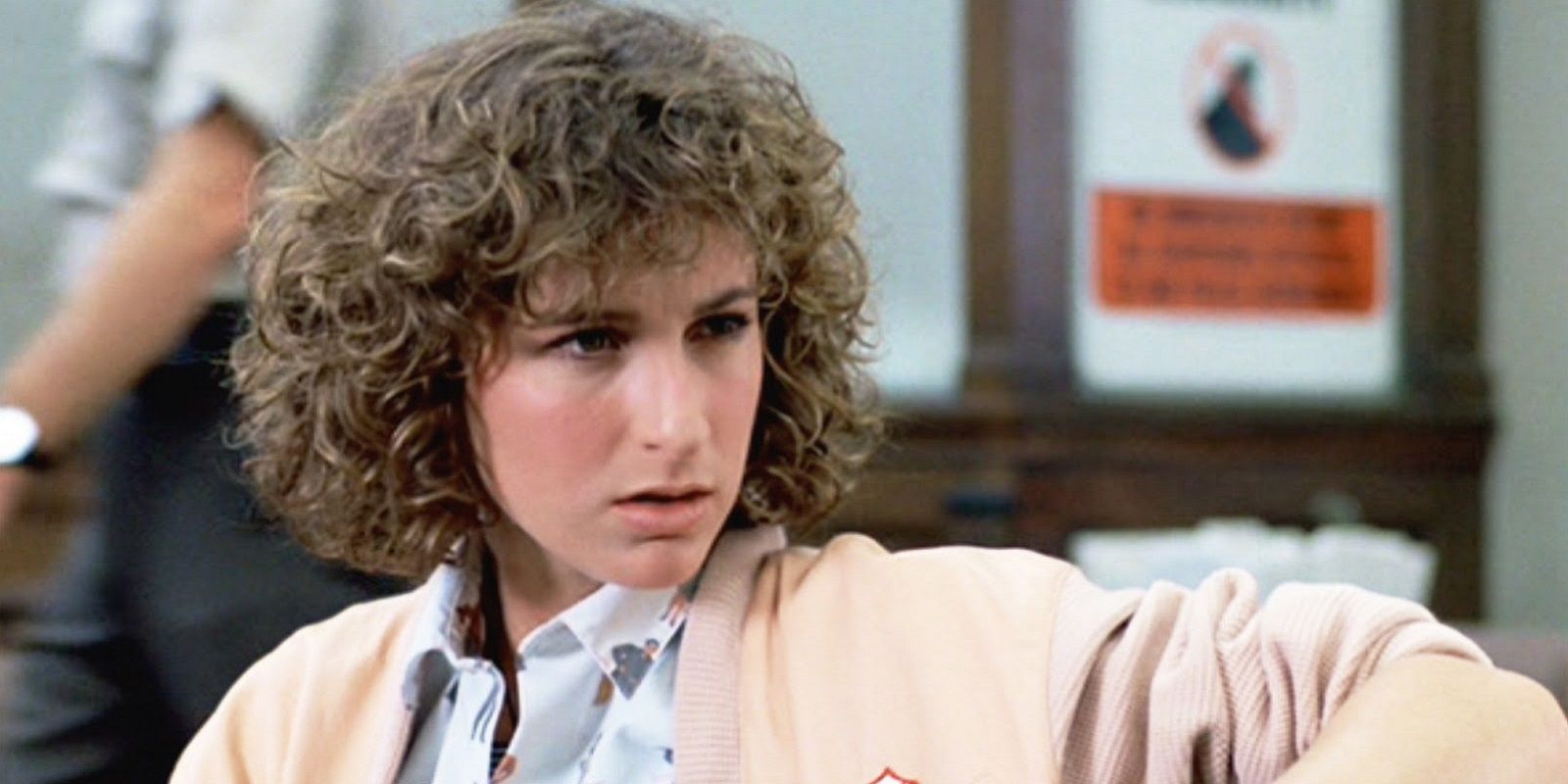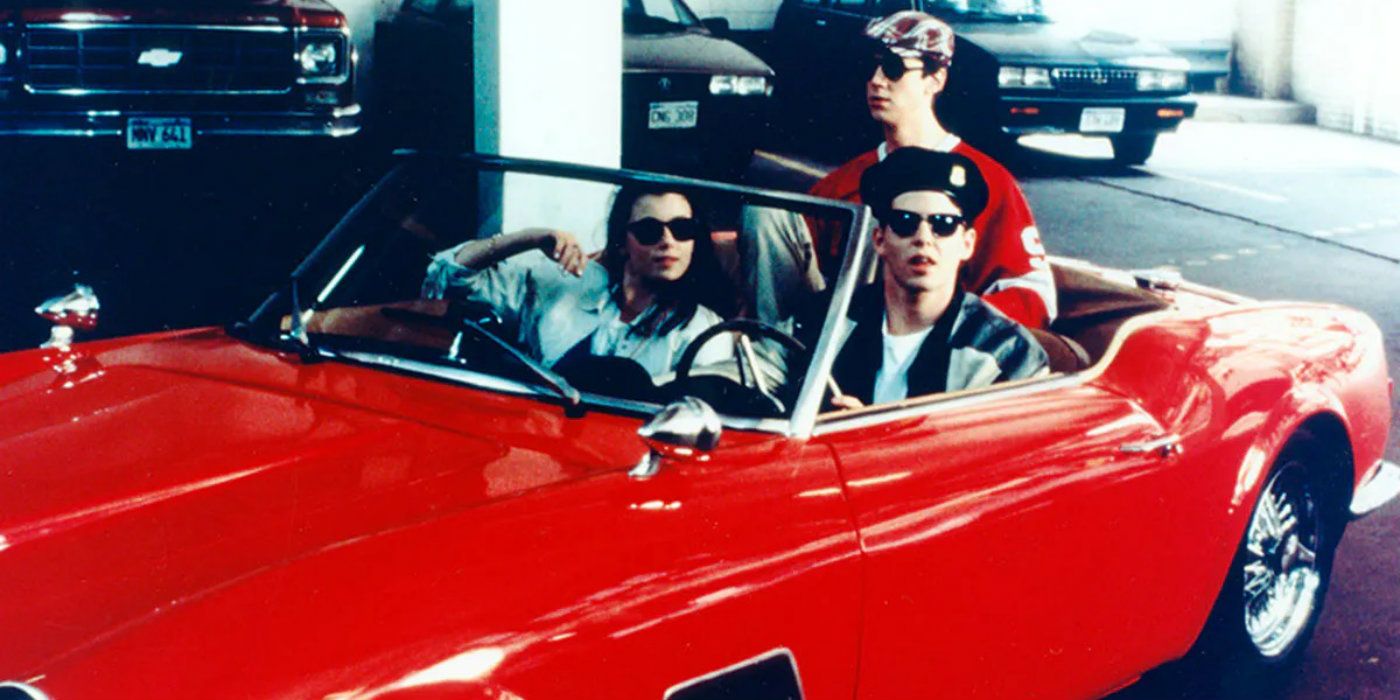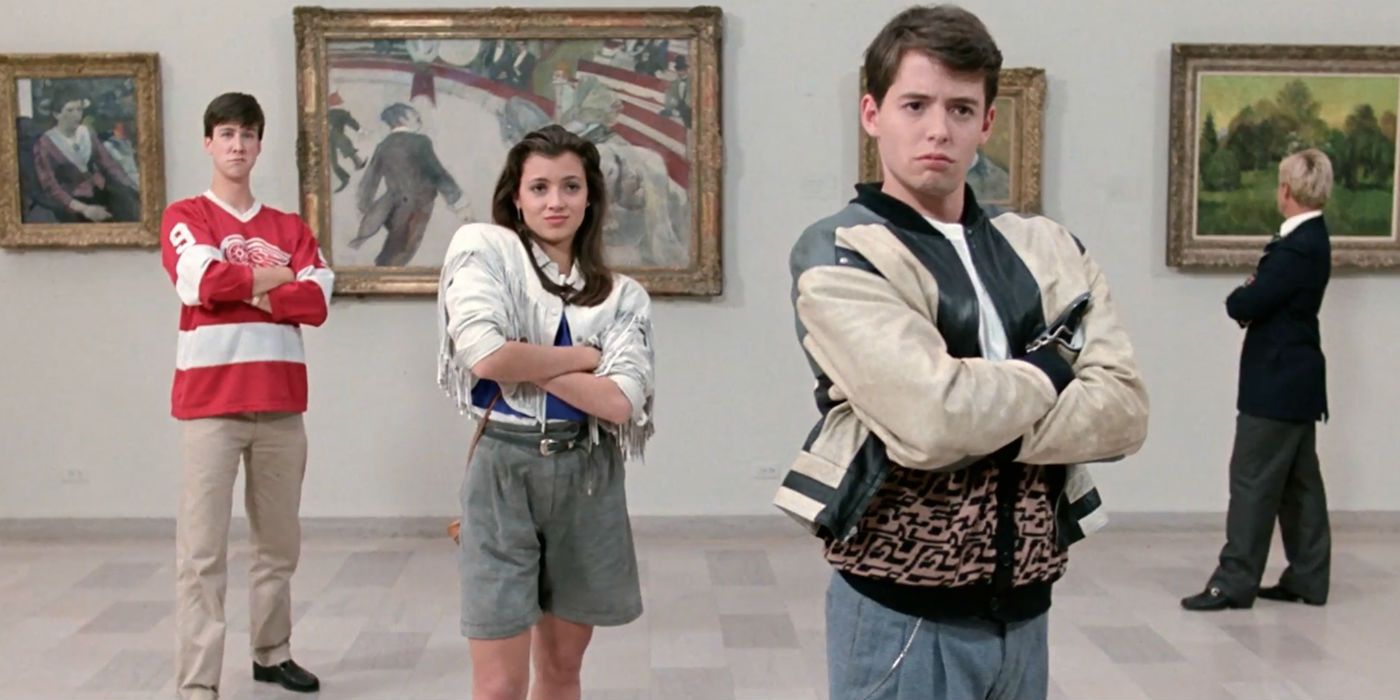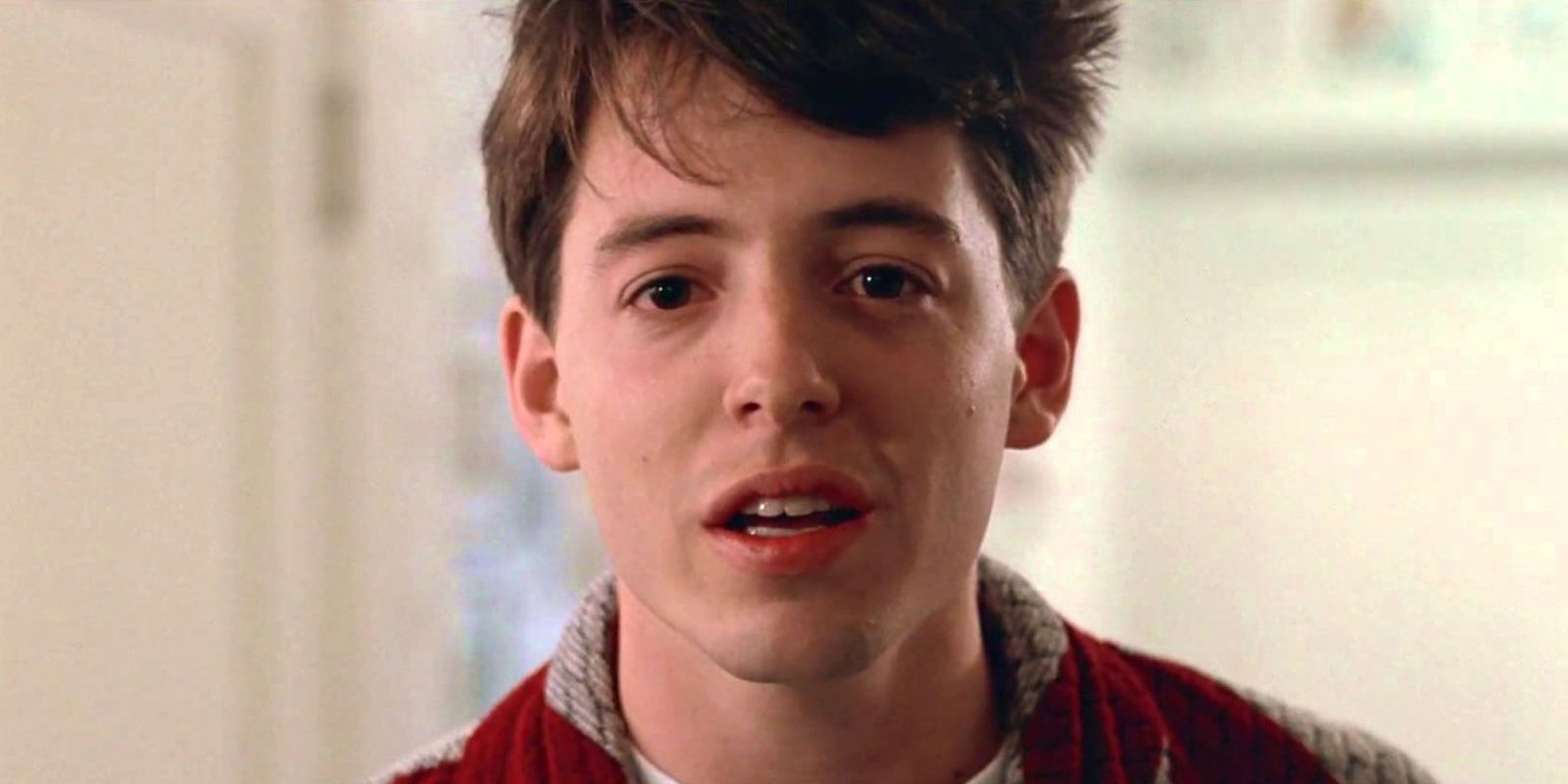Ferris Bueller's Day Off is remembered as a feel-good '80s classic, yet its ending makes the movie far more meaningful than it otherwise seems. Released in the summer of 1986, Ferris Bueller's Day Off established Matthew Broderick as a global megastar, and it remains one of the actor's most well-known and beloved roles to date. With Broderick as the titular truant who skips school along with his best friend, Cameron Frye (Alan Ruck), and girlfriend, Sloane Peterson (Mia Sara), Ferris Bueller's Day Off sees Ferris engage in a day of uninhibited revelry while the powers of authority — namely Jeffrey Jones's Ed Rooney — seeks to catch him in the act.
John Hughes's '80s movies are among the best of that decade, and with Ferris Bueller's Day Off, he delivered an absolute masterclass in how to create a teen comedy. It simply has it all: a lovable rogue of a protagonist, a slightly stuffy but sympathetic sidekick, a villainous authority figure, and parents who are blissfully unaware of the antics that are unfolding. The teenage rebellion on display in Ferris Bueller's Day Off captures not just the spirit of the '80s, but the spirit of adolescence itself.
After enjoying their day of freedom, Ferris, Cameron, and Sloane accidentally destroy Cameron's father's Ferrari, finally prompting a shift in Cameron's behavior. Having achieved his goal for the day, Ferris rushes home in order to preserve his alibi. Though his cover is almost blown, his sister, Jeannie (Jennifer Grey), who has spent all day trying to catch him in the act of playing hooky, has a change of heart, helping her brother avoid consequences for his truancy. It was one of the most memorable movie endings of its time and remains one of the most triumphant moments in all of cinema.
Was Ferris Bueller A Figment Of Cameron's Imagination?
One of the most persistent theories about Ferris Bueller's Day Off is that the titular character is actually a figment of Cameron's imagination. The theory posits that Ferris is the embodiment of Cameron's repressed rebellious tendencies and that he represents all of the things that Cameron considers himself too scared to do. This would mean that Ferris doesn't exist at all and that Cameron is the one who masterminded the entire day — while also resisting it.
The idea that Ferris Bueller exists only in Cameron's imagination is interesting, but it's unlikely to be true. For starters, Ferris has his own parents and sister, as well as a completely separate house from Cameron's. There are also a number of occasions where Cameron and Ferris are in two entirely different places doing entirely different things, making their separate identities central to the plot. Though the theory puts an exciting spin on Ferris Bueller's Day Off, there's nothing substantial to back it up.
Why Jeannie Decides To Cover For Ferris
One of the most significant aspects of Ferris Bueller's Day Off's ending comes at the exact moment where it seems that Ferris is finally caught. Though Rooney seems to have Ferris caught red-handed, Jeannie steps in to protect her brother's false alibi, challenging Rooney and seeing him off, allowing Ferris time to climb into bed and feign illness. Jeannie's change of heart is the final pivotal moment in the beloved John Hughes comedy, but it isn't something that's overtly explained.
Jeannie covering for Ferris is the result of an earlier scene in which she meets an unnamed delinquent in the police station. He advises her to spend less time worrying about Ferris and more time thinking of herself, and it seemingly prompts the shift in her demeanor. Though it's not explicitly explored any more than that, it's clear that at that moment, Jeannie finally sees things from Ferris's perspective, and decides to act protectively. Though Rooney may have been justified in his suspicion of Ferris, Jeannie sees an opportunity to take the high road (and potentially earn a future favor from her brother), and she takes it — all thanks to Charlie Sheen's unnamed character and his imparted wisdom.
What The Ferrari Really Means
In addition to Ferris Bueller's Day Off's actors, the film also stars one other instantly recognizable object: a bright red 1961 Ferrari 250 GT California Spyder. The car belongs to Cameron's father, but Ferris talks his friend into borrowing it for the day. Cameron's extreme worry about the car and his father finding out he's taken it is a window into the character's mind. Toward the end of the movie, the car is accidentally destroyed after Cameron finally begins to let out some of his anger with his father.
It's in this scene where the true meaning of the Ferrari is established: it represents Cameron's father and his misplaced attention. The car embodies Cameron's insecurities and resentment, as it seemingly means more to his father than Cameron himself does, and with Cameron's concern for the car comes a deep-seated rage that has been repressed for far too long. The Ferrari holds a lot of meaning to Cameron in Ferris Bueller's Day Off, and upon its destruction, the character is finally able to come to terms with his own emotional distress and prepares to finally stand up to his father.
Ferris Bueller's Day Off Is About Rules, Order, & Fear
Ferris Bueller's Day Off's main themes are typical of the teen comedy genre, but they're explored perfectly. The central theme concerns rules and order: Ferris represents resistance to those ideals, while Rooney and Jeannie both represent order attempting to stamp out his teenage rebellion. The film centers around Ferris challenging the rules, and despite Cameron's anxious warnings, he doesn't seem to face any genuine repercussions. However, even this doesn't overly concern Ferris, because he's the embodiment of the ignorance of youth and how that can be a positive and liberating element in young people's lives.
One of Ferris Bueller's Day Off's other themes makes it less an '80s comedy and more of a horror movie, as it also touches on the idea of fear. Fear is the driving force in Cameron's life — fear of his father, fear of consequences — and Ferris deliberately challenges that. The central premise of the film revolves around Ferris showing Cameron how fun life can be when that fear is removed from the equation, and it's ultimately what leads to Cameron feeling empowered to stand up to his father.
What Ferris Bueller's Day Off's Ending Really Means
Ferris Bueller's Day Off's ending perfectly fits the themes of teenage rebellion. Though many of Ferris's actions may seem irresponsible, there are no immediate consequences for him, and that's exactly the point of the film's final scenes. The line Ferris delivers — "Life moves pretty fast; if you don't stop and look around once in a while, you could miss it" — captures this exactly, embodying the spirit of Hollywood's '80s movies, particularly that of its teen comedies. Having the free-spirited rogue win the day is key because it underpins the exact message that Ferris was trying to send to Cameron: be confident and unafraid, and everything will work out.
Though it could be said that Ferris Bueller's Day Off sends a problematic message, it's actually quite the opposite. Its ending is a gentle reminder to the audience not to take life too seriously, and to find enjoyment wherever possible. This is a large part of what makes its titular character so charismatic, and it has undoubtedly contributed to Ferris Bueller's Day Off's lasting popularity.

